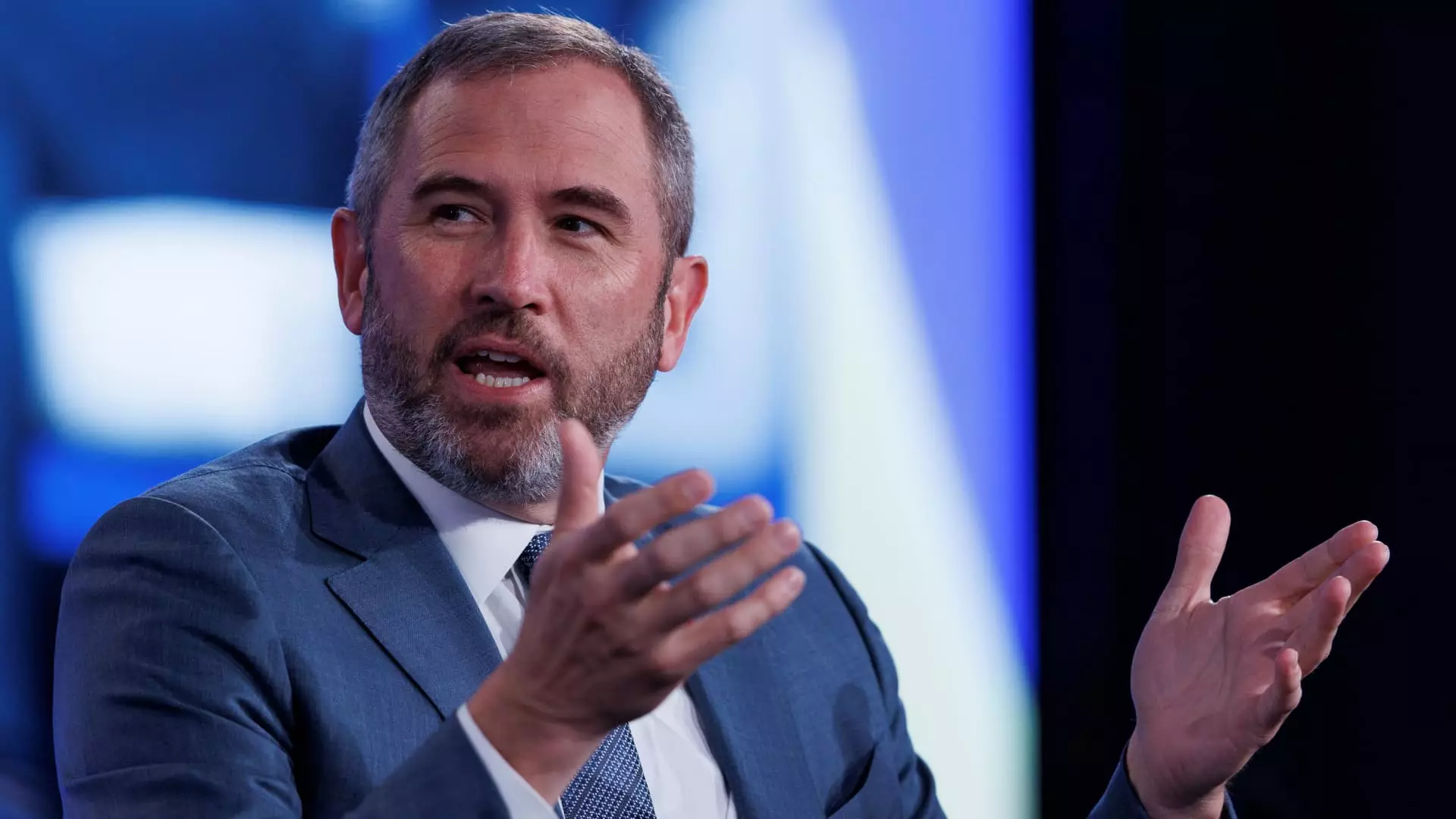In an engaging discussion during DC Fintech Week, Brad Garlinghouse, CEO of Ripple Labs, expressed a mix of skepticism and optimism regarding the future landscape of cryptocurrency regulation in the United States. With the impending elections casting a shadow on the regulatory environment, Garlinghouse articulated his belief that a new political landscape may herald a more favorable era for the cryptocurrency sector.
Garlinghouse’s commentary reflects the challenges that the crypto industry has faced in the U.S., particularly following legal battles with the Securities and Exchange Commission (SEC). Ripple Labs, synonymous with its digital asset XRP, has transitioned into a global business primarily serving clients outside the U.S., pointing to the restrictive and contentious regulatory atmosphere. Garlinghouse’s observation that about 95% of Ripple’s transactions occur outside of American borders underscores a broader sentiment within the cryptocurrency community—many firms are opting for jurisdictions that offer clearer regulations and more open environments for innovation.
This trend was highlighted by Garlinghouse’s stark recommendation for fintech startups: to consider incorporating outside the United States. The advice conveys a sense of urgency for companies to seek more conducive regulatory frameworks that allow technological advancements to flourish without excessive government interference.
Despite the challenges posed by U.S. regulators, Garlinghouse remained upbeat about the long-term prospects for the cryptocurrency industry. He conveyed a sense of inevitability regarding progress in the sector, emphasizing that even amidst current governmental missteps, a rebound is on the horizon. His assertion that the U.S. will eventually correct its regulatory approach, coupled with the notion that the industry will continue to thrive, serves as a rallying cry for crypto advocates.
Garlinghouse’s faith in the resilience of the industry also points to an underlying confidence that crypto will not only survive but thrive, even when faced with adversities. He alluded to the potential for future politicians to reflect on the past treatment of the industry with a critical eye—indicating that a shift in attitude towards crypto is not just possible, but likely.
Notably, Garlinghouse is not merely a passive observer of the political landscape; Ripple Labs has invested substantially in pro-crypto political initiatives, donating roughly $45 million to the Fairshake pro-crypto PAC. This level of engagement illustrates the significance of political alignment in shaping a favorable regulatory atmosphere. Given the polarized political sentiment surrounding cryptocurrencies, these contributions seem aimed at countering the increasingly partisan rhetoric that has characterized the debate over crypto regulation.
Garlinghouse’s remarks also highlight the contrasting approaches of different political factions towards cryptocurrency. While he acknowledged some promising statements from the Harris campaign, he expressed apprehension regarding the overall stance of the current administration, describing it as an “attack” on the industry. This sentiment resonates with many stakeholders in the crypto ecosystem who are wary of punitive regulatory actions that could stifle innovation.
Looking forward, Garlinghouse concluded with an optimistic forecast for the industry, suggesting that regardless of the election outcomes, a reset of the regulatory framework is inevitable. He emphasized the need for constructive discussions moving forward, with the ultimate goal being a balanced approach that encourages technological advancement while safeguarding consumer interests. His insights may serve as a beacon for crypto enthusiasts, underlining the importance of persistence and adaptability in navigating the regulatory maze.
Moreover, the mention of supporting challenger candidates, like John Deaton, who seek to reshape the conversation around crypto, demonstrates an active engagement with politics aimed at fostering a regulatory environment that aligns more closely with the vision held by many in the crypto community.
Brad Garlinghouse’s reflections on the current and future state of cryptocurrency regulation offer valuable insights into a rapidly evolving landscape. His blend of skepticism and optimism captures the essence of the struggles facing the industry, while also illuminating paths toward constructive change. As the U.S. approaches pivotal elections, the dialogue surrounding cryptocurrencies will likely intensify, making it essential for industry leaders, lawmakers, and consumers to remain vigilant and proactive. Ultimately, the pursuit of a balanced regulatory framework may be the key to unlocking the full potential of the cryptocurrency revolution in the coming years.

